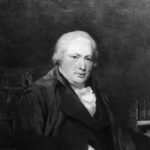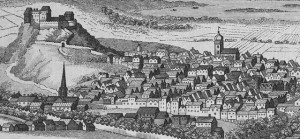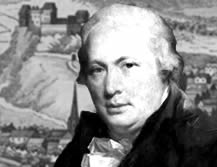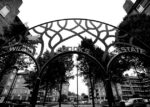Description
 Meet Professor Andrew Dalzel (1742-1806), the carpenter’s son who rose to be a leading Edinburgh intellectual. He was born on the Newliston estate in Linlithgowshire; after his father died, his talent for languages was spotted at parochial school. After school he went to Edinburgh University and by 1779 he became the Chair of Greek, which he held for over thirty years. In 1785 he received the additional appointment of University Librarian.
Meet Professor Andrew Dalzel (1742-1806), the carpenter’s son who rose to be a leading Edinburgh intellectual. He was born on the Newliston estate in Linlithgowshire; after his father died, his talent for languages was spotted at parochial school. After school he went to Edinburgh University and by 1779 he became the Chair of Greek, which he held for over thirty years. In 1785 he received the additional appointment of University Librarian.
Dalzel turned round Greek Studies at the University, which had dwindled to almost nothing under his predecessor. He soon had over a hundred students enrolled. He was proud of the standards of learning his students achieved, and compared them positively with those at Oxford and Cambridge, where ‘dissipation, idleness, drinking, and gambling’ predominated. ‘The English Universities are huge masses of magnificence and form, but ill calculated to promote the cause of science or of liberal inquiry.’
 Dalzel remained conscious of his background and correspondingly free from snobbery. When Robert Burns arrived in Edinburgh, he wrote enthusiastically, ‘We have got a poet in town just now, whom everybody is taking notice of — a ploughman from Ayrshire — a man of unquestionable genius.’ He was also an exceptionally hardworking teacher, teaching two two-hour classes daily. The first focussed on the Greek language through engagement with Lucian, Homer, Xenophon, Anacreon and the New Testament. The second class, which was itself divided into groups depending on level of linguistic attainment, focussed on Thucydides, Herodotus and Demosthenes, supplemented by more Homer, some tragedy, and Theocritus. Dalzel also gave two lectures a week on ‘the history, government, manners, the poetry and eloquence’ of the ancient Greeks.
Dalzel remained conscious of his background and correspondingly free from snobbery. When Robert Burns arrived in Edinburgh, he wrote enthusiastically, ‘We have got a poet in town just now, whom everybody is taking notice of — a ploughman from Ayrshire — a man of unquestionable genius.’ He was also an exceptionally hardworking teacher, teaching two two-hour classes daily. The first focussed on the Greek language through engagement with Lucian, Homer, Xenophon, Anacreon and the New Testament. The second class, which was itself divided into groups depending on level of linguistic attainment, focussed on Thucydides, Herodotus and Demosthenes, supplemented by more Homer, some tragedy, and Theocritus. Dalzel also gave two lectures a week on ‘the history, government, manners, the poetry and eloquence’ of the ancient Greeks.
His student Lord Henry Cockburn recalled him as ‘a general exciter of of boys’ minds… Mild, affectionate, simple, an absolute enthusiast about learning particularly classical, and especially Greek; with an innocence of soul and of manner which imparted an air of honest kindliness to whatever he said or did, and a slow, soft formal voice, he was a great favourite with all boys, and all good men. Never was a voyager, out in quest of new islands, more delighted in finding one, than he was in discovering any good quality in any humble youth.’
Nobody was surprised when Dalzel hired as his assistant a poverty-stricken ‘humble youth’ named George Dunbar (1774-1851), a gardener, who eventually succeeded him in the chair.




